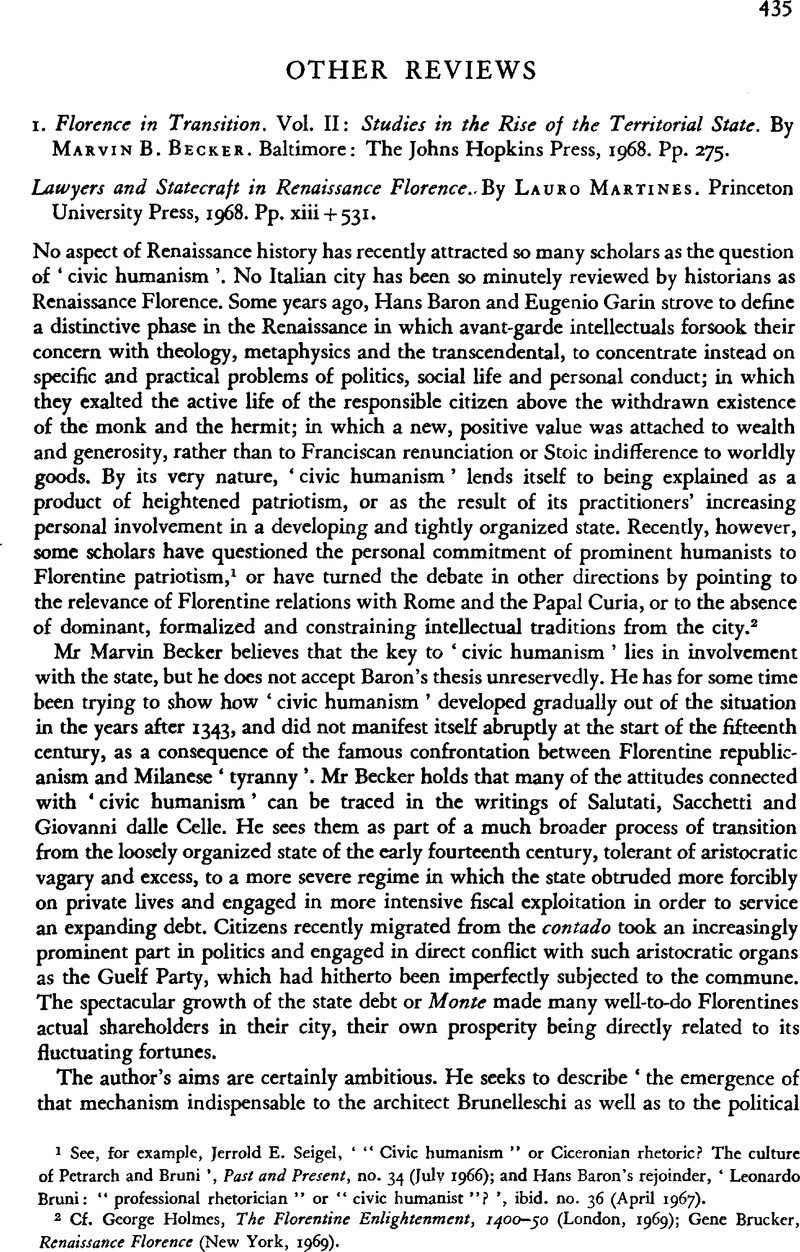No CrossRef data available.
Published online by Cambridge University Press: 11 February 2009

1 See, for example, Seigel, Jerrold E., ‘“Civic humanism” or Ciceronian rhetoric? The culture of Petrarch and Bruni’, Past and Present, no. 34 (July 1966)Google Scholar; and Hans Baron's rejoinder, ‘Leonardo Bruni: “professional rhetorician” or “civic humanist”?’, ibid. no. 36 (April 1967).
2 Cf. Holmes, George, The Florentine Enlightenment, 1400–50 (London, 1969)Google Scholar; Brucker, Gene, Renaissance Florence (New York, 1969).Google Scholar
3 Cf. the statistics in Molho, Anthony, ‘Politics and the ruling class in early Renaissance Florence’, Nuova Rivista Storica, no. 52 (1968), at pp. 414–15. These suggest that after 1400 there was a considerable decrease in the numbers of new families admitted to the priorate. See also the remarks on this subject in Martines, Lawyers and Statecraft, pp. 65 f. and 205 f.Google Scholar
4 The argument of Bouwsma, William J., Venice and the Defense of Republican Liberty: Renaissance Values in the Age of the Counter Reformation (Berkeley and Los Angeles, 1968).Google Scholar
5 ‘The Florentine territorial state and civic humanism in the early Renaissance’, in Rubinstein, Nicolai (ed.), Florentine Studies: Politics and Society in Renaissance Florence (London, 1968).Google Scholar
6 The Social World of the Florentine Humanists, 1390–1460 (London, 1963).Google Scholar
7 Apart from the historian Francesco Guicciardini, lawyers do not appear in the efficient and informative study by Goldthwaite, Richard A., Private Wealth in Renaissance Florence: a Study of Four Families (Princeton, 1968).Google Scholar